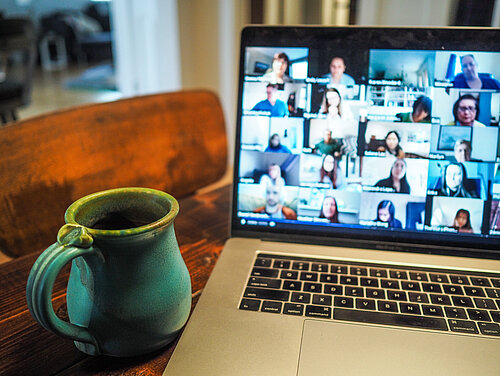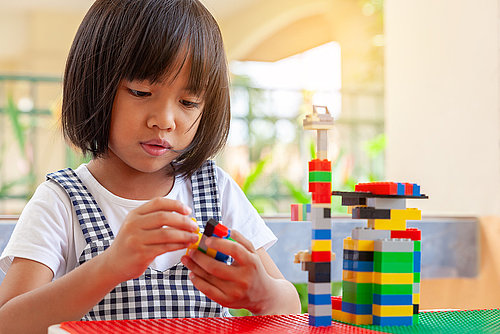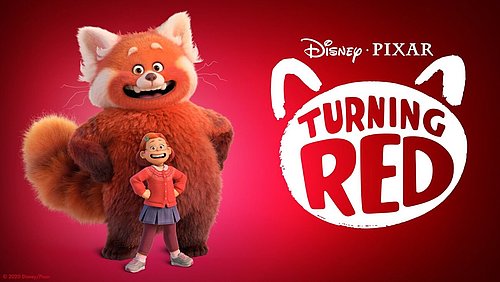
Education
Research | Social media | Marketing
Blog
Redefining Masculinity for the Next Generation

Gender roles and societal expectations have changed in recent years, blurring traditional definitions of masculinity and leaving many young boys struggling to define their identities and find their place in society. While female empowerment has rightfully opened up more opportunities for girls, the old-school rules of masculinity aren’t as clear cut anymore, and this has left many boys uncertain and conflicted, unsure of who they are meant to be and how they should act.
As a mum of a young adult son, I’ve seen up close how these changing norms have stirred up confusion and mixed emotions. There were definitely moments when my son needed extra support in figuring out his role and coping with social pressures, and it’s clear that he and his friends continue to face challenges that just weren’t as common, or even talked about, in previous generations.
This struggle to define masculinity has created an opening for toxic ideologies to take hold. Figures like Andrew Tate are exploiting the confusion and feelings of isolation, presenting a version of masculinity that seems empowering, but ultimately reinforces harmful stereotypes and behaviours.
This confusion and vulnerability is powerfully illustrated in the Netflix series Adolescence. The show opens with the shocking arrest of 13-year-old Jamie Miller for the murder of his classmate, Katie Leonard. It’s a stark portrayal of how these ideologies infiltrate young minds, particularly when boys lack the emotional tools to cope with their feelings. It's a difficult watch, but an important one, accurately reflecting the emotional struggles young boys are facing today. It captures their confusion and loneliness - and the intense pressure to conform to outdated ideals of masculinity - pressures that affect not just their relationships with others, but with themselves. How do they express emotions? How do they ask for help? How do they navigate the overwhelming expectations of social media and the demand to "be tough"?
The series doesn’t just reflect a fictional narrative - it mirrors a very real societal issue. Since the series aired, writer Jack Thorne has been outspoken about the damaging effects of toxic masculinity. In an interview with The Guardian, he reflects on the appeal of incel culture, acknowledging that isolated youths often find answers in these harmful narratives, and stresses the need for societal intervention. While Adolescence shows how easily vulnerable boys can fall into these toxic ideologies, it also highlights how this dangerous version of masculinity dismisses vulnerability as weakness, pushing the idea that men should be closed off and tough. This toxic narrative becomes a lifeline for many boys who are struggling to figure out who they are, showing the very real concerns of how easily they can be set on a destructive path of isolation and misogyny.
The Need for Emotional Openness and Role Models Who Embody It
While the damaging impact of these ideologies on women is alarmingly clear, the harm they do to boys is just as concerning. By promoting the idea that vulnerability is a weakness, these ideologies rob boys of the opportunity to develop emotional intelligence and process their feelings. When young men are told that showing emotion is weak, are they learning to suppress their feelings rather than process them? And is this what enables figures like Andrew Tate to rise in influence, offering a distorted view of strength and control?
Actor Stephen Graham recently highlighted the importance of emotional availability in boys. Speaking to The Standard, he said “It’s all about being real with yourself. We’ve got to start showing young boys that there’s strength in being vulnerable, that it’s okay to feel your feelings and not bottle them up.” He’s right. In a culture that tells boys to “man up” and hide their emotions, we need more role models who demonstrate that emotional intelligence is a form of strength.
An example of a healthier model of masculinity, recently earning some important media attention is Jamie Laing. Making headlines after openly crying following his completion of five ultra-marathons in five days, his emotional honesty challenged the outdated belief that strength means suppressing emotions. By embracing vulnerability, he showed that true masculinity lies in authenticity. We need to see more emotional openness and more role models who show that vulnerability isn’t a weakness, but a powerful strength. If we only showcase restrictive and overly stoic versions of masculinity, how can boys even begin to understand that showing emotion is not only okay, but necessary? The media has the opportunity, and the responsibility to reflect the full range of human experience, so that boys can see examples of what it means to be strong and vulnerable at the same time.
Does Socioeconomic Background Influence the Way Boys Engage with Toxic Masculinity?
Emotional suppression is without doubt a key factor, but could a boy’s environment also play a role? In many working-class families, economic instability often reinforces a generational pattern of bottling up emotions. Fathers conditioned to suppress vulnerability may unintentionally pass on emotional detachment, leaving boys struggling to process their feelings, and potentially make them more susceptible to toxic ideologies online. Stephen Graham’s portrayal of Jamie Miller’s father in Adolescence powerfully reflects this cycle, where toughness is prioritised over emotional expression.
Beyond emotional absence, financial strain often means parents are physically absent due to long working hours, pushing boys to seek guidance elsewhere. Are middle-class boys better off? Not necessarily. But the fact that their parents may not face the same financial pressures could allow for more physical presence and greater encouragement of emotional openness. This difference is not about individual parenting styles, but rather linked to wider issues of class and economic stability.
Recognising Recurring Social Fears
As we examine the rise of these harmful ideologies, it’s important to recognise that fears about the influence of modern culture on young people are not new. In fact, history has seen similar concerns crop up with pretty much every new cultural shift, showing that these anxieties are recurring, and perhaps even inevitable. When rock ‘n’ roll emerged in the 1950s, it sparked panic and fear in parents who believed it could lead to delinquency and rebellion! Similarly, in the early 2000s, video games like Grand Theft Auto caused intense anxiety among parents, who worried about the game’s violent content and how early exposure to it could influence kids to imitate aggressive, anti-social behaviour.
However, today’s rise of toxic misogynistic ideologies online presents a more immediate and dangerous threat. This isn’t just about generational shifts or changing social norms, it’s about ensuring teenagers get the support they need through these challenging years. The real question isn’t about eliminating every cultural influence that worries parents, but about helping boys develop the critical thinking and emotional intelligence needed to navigate an increasingly polarised world, where harmful ideologies are more accessible and more influential than ever.
Can Brands Help Boys Embrace a Healthier and More Inclusive Vision of Manhood?
As society struggles with these changing definitions of masculinity, brands have a unique opportunity to influence how boys understand and navigate their place in the world. Instead of reinforcing outdated stereotypes, brands can help reshape the narrative by embracing a more inclusive, emotionally intelligent vision of masculinity - one that celebrates vulnerability alongside strength - and kindness alongside toughness. This isn’t just about countering harmful ideologies, it’s about providing boys with the tools they need to navigate an increasingly complex and polarised world. By promoting emotional openness, championing positive masculinity, and raising awareness about mental health, brands can support young boys in their journey toward becoming emotionally well-rounded men.
The Role We Can All Play
To truly combat the rise of misogynistic ideologies and help boys embrace a healthier, more inclusive masculinity, I think we all need to step up and present a unified message - parents, teachers, public role models - and brands. By working together to create a vision for the future that shows boys they can be more than just a limited, outdated version of masculinity, we can give them the tools they need to handle today’s world with emotional intelligence and respect - for themselves and everyone else.
Final Thought for Brands
Encourage emotional openness, by celebrating vulnerability alongside physical strength, showing boys that real courage includes emotional honesty.
Champion positive masculinity, by moving beyond outdated stereotypes, and equating strength with kindness and emotional intelligence.
Educate and raise awareness, by using your platform to start conversations about mental health, relationships and toxic masculinity.
Promote respect for all genders by championing female empowerment and emphasising the importance of mutual respect. This helps break down harmful stereotypes and divisions, creating a more inclusive and supportive environment for everyone.
Redefining Masculinity – A Glimmer of Hope?
At We Are Family, we spend a lot of time talking to young people and their parents about identity and individuality. We recently did a study that asked Teens across the U.S how they define masculinity, and their answers were unexpectedly refreshing. They said that being kind to others was the greatest measure of being a man. So there’s hope…a glimmer of light against the darkness of the issues that shows like adolescence have brought to the surface.


